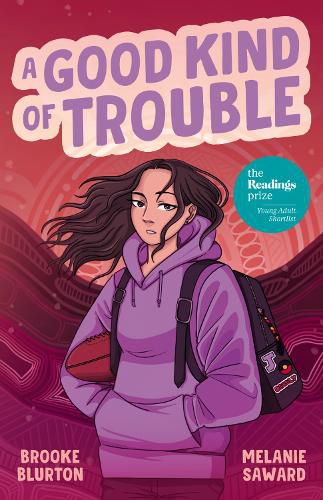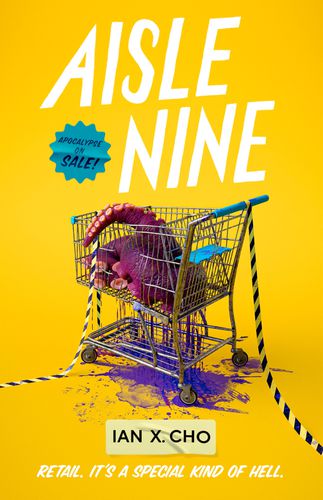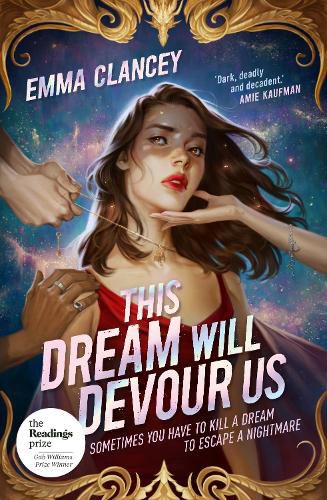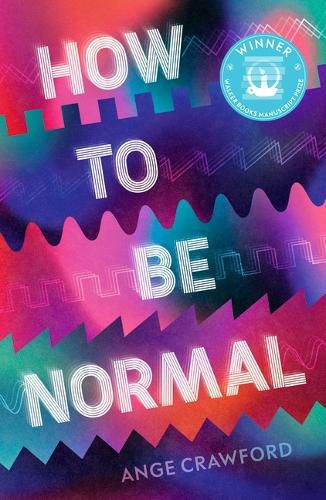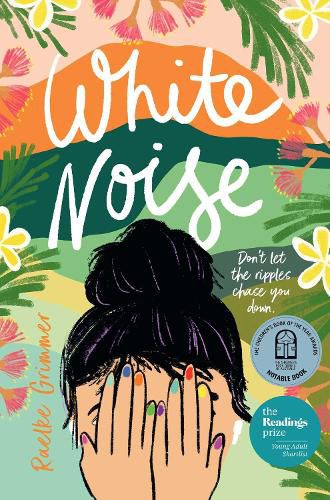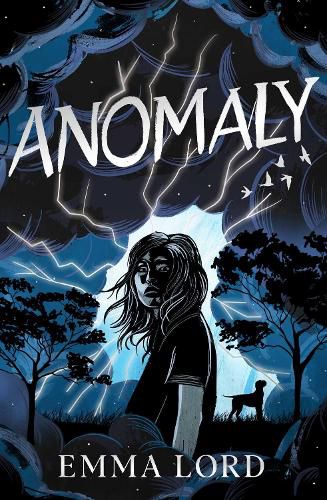Are you planning your next book club read? The 2025 shortlist for The Readings Young Adult Prize has six great books that will make you the hero of book club! The titles are thoughtful, emotional and bookseller approved, so you know you're in for a fun read, with plenty to discuss.
To help you pick the right book for your group, and give you some thought-starters to kick-start conversation, here's our book club guide to The Readings Young Adult Prize 2025 shortlist!
Not looking for a young adult read? Check out the shortlist for The Readings New Australian Fiction Prize.
A Good Kind of Trouble
Brooke Blurton & Melanie Saward
Themes
- Ethics and social justice
- Family and community
- LGBTQIA+
- Aboriginal and Torres Strait Islander histories and cultures
Questions for discussion
Jamie is comfortable with her bisexuality but sometimes feels isolated by being the only openly queer student at her school. Why might students like Missy be hesitant to openly share their sexuality?
If you were doing a project like Jamie and Stella’s about inequality at your school, is there anything you would say doesn’t reflect the diversity of the student population – maybe the names of buildings, the books in the library, or the cultural or religious celebrations recognised?
For many years there was a perception that sport was the only arena of ‘excellence’ or ‘success’ for First Nations Australians. Not many people know that Aboriginal and Torres Strait Islander people are the oldest scientists in human history. Why do you think it's only First Nations athletes and musicians that are celebrated?
Aisle Nine
Ian X. Cho
Themes
- Corporate consumerism
- Biological and found family
- Dystopia
- Romance
Questions for discussion
How does the Vanguard Corporation manipulate the demon portals to their own advantage?
In what sense is this dystopian world influenced by current social and political concerns?
If a demon portal was influenced by your own nightmares, what kind of creatures would come out? Are they similar to the demons Cho writes about, or would your nightmares be different?
This Dream Will Devour Us
Emma Clancey
Themes
- Deception and authenticity
- Money and class
- LGBTQIA+
- Platonic and romantic love
Questions for discussion
What do you think the title ‘This Dream Will Devour Us’ suggests? How does it contrast with traditional ideas of dreams as positive or aspirational?
Fantasy novels featuring magic often serve as a powerful lens through which to explore real world issues. How does this story illuminate deeper truths about our real world?
Emma Clancey says of her novel, ‘Every character in this book – whether good or evil – is, to some extent, a liar. They each believe lying and presenting an “alternate” version of themself to the world is necessary to survive or succeed.’ In what ways do the character’s lies shape their relationships, and how does this impact their ability to ultimately find happiness?
How to Be Normal
Ange Crawford
Themes
- Identity
- Friendship
- Music
- Bullying
- Abuse and coercive control
Questions for discussion
Why does Astrid strive to be ‘boring’ and how does this reflect on the title of the book? What is normal? Does such a thing exist?
What do you think the different shapes between the paragraphs represent?
What is the significance of Astrid and Cathy’s friendship? How does it help both girls?
White Noise
Raelke Grimmer
Themes
- Autism and neurodiversity
- Death and grief
- Family
- Friendship
Questions for discussion
Raelke Grimmer has created a playlist for White Noise, which you can find here. How do you think the songs relate to key moments in the book? If you were to create a playlist to convey the story of White Noise, what songs would you pick?
How does the first-person narration contribute to our understanding of and empathy towards Emma and the way she views the world?
How does running become part of Emma’s routine, and why is this important to her? What role does sport play in Emma’s life?
Anomaly
Emma Lord
Themes
- Identity
- Trauma and mental health
- Power
- Survival
Questions for discussion
Anomaly is a novel that straddles several genres, particularly horror, speculative fiction and dystopia. Consider the characteristic conventions of these genres and how Anomaly uses or rejects them. What genre do you think it most belongs to?
At a plot level, this is a novel about power, identity and survival. But it also explores themes of grief, trauma and mental illness. How can the Reapers be read both literally or as a metaphor for depression and anxiety?
Imagine you want to recommend Anomaly to another reader – what other books might you compare it to? What three things would you share with them that would inspire them to pick it up?


